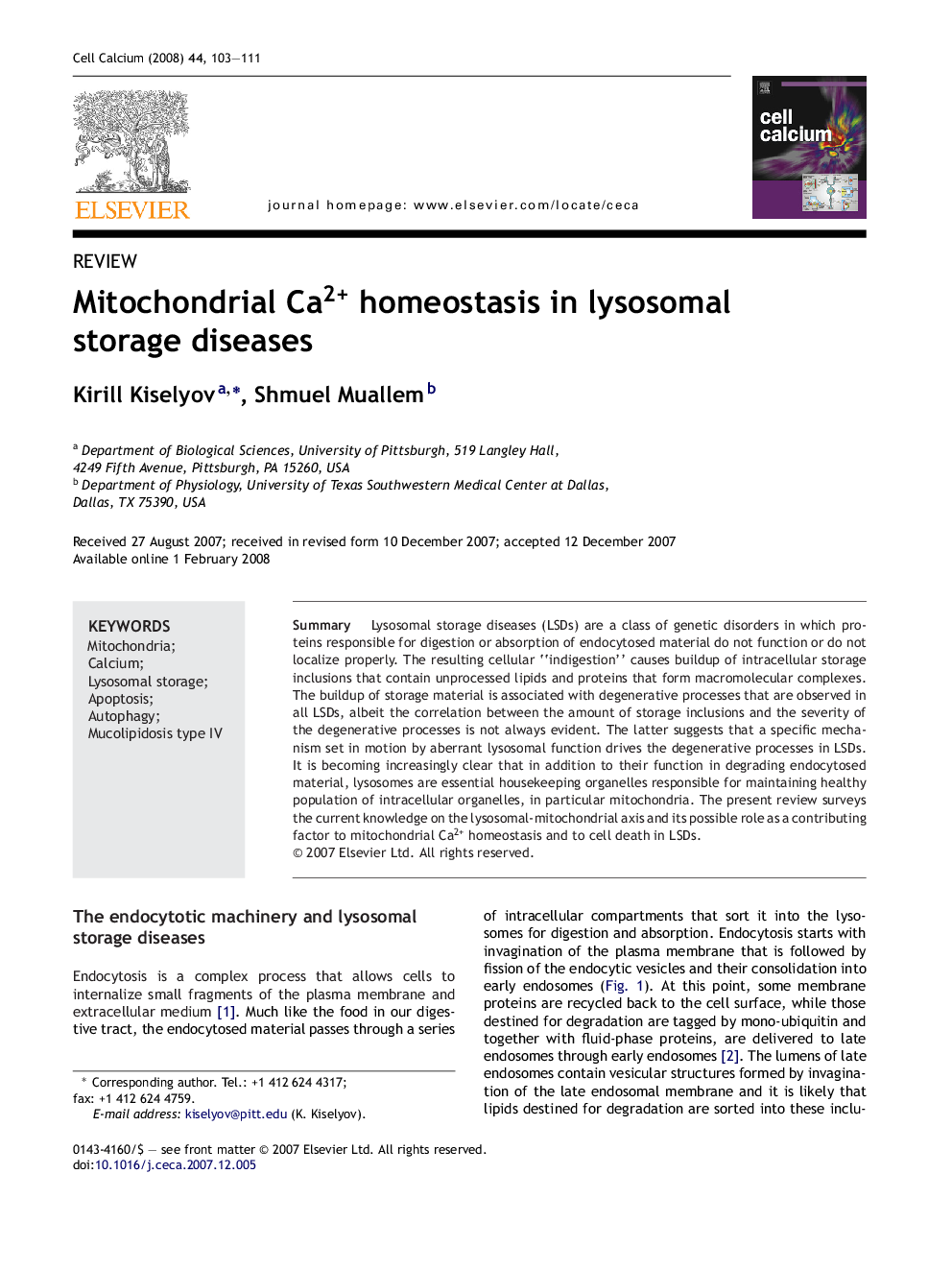| Article ID | Journal | Published Year | Pages | File Type |
|---|---|---|---|---|
| 2166571 | Cell Calcium | 2008 | 9 Pages |
SummaryLysosomal storage diseases (LSDs) are a class of genetic disorders in which proteins responsible for digestion or absorption of endocytosed material do not function or do not localize properly. The resulting cellular “indigestion” causes buildup of intracellular storage inclusions that contain unprocessed lipids and proteins that form macromolecular complexes. The buildup of storage material is associated with degenerative processes that are observed in all LSDs, albeit the correlation between the amount of storage inclusions and the severity of the degenerative processes is not always evident. The latter suggests that a specific mechanism set in motion by aberrant lysosomal function drives the degenerative processes in LSDs. It is becoming increasingly clear that in addition to their function in degrading endocytosed material, lysosomes are essential housekeeping organelles responsible for maintaining healthy population of intracellular organelles, in particular mitochondria. The present review surveys the current knowledge on the lysosomal-mitochondrial axis and its possible role as a contributing factor to mitochondrial Ca2+ homeostasis and to cell death in LSDs.
